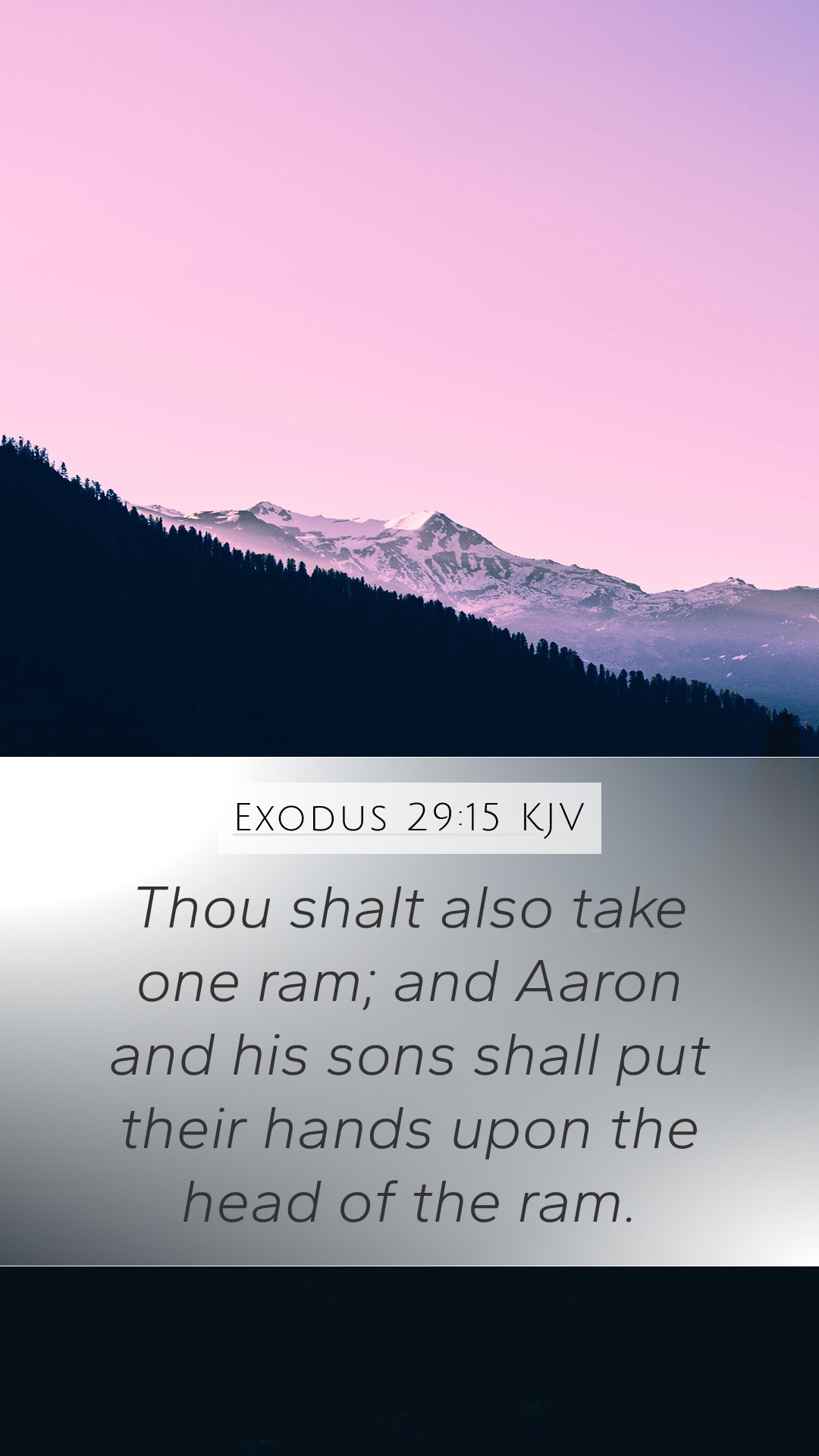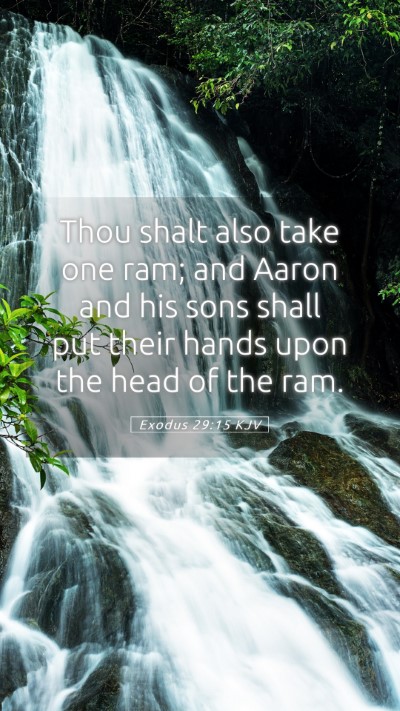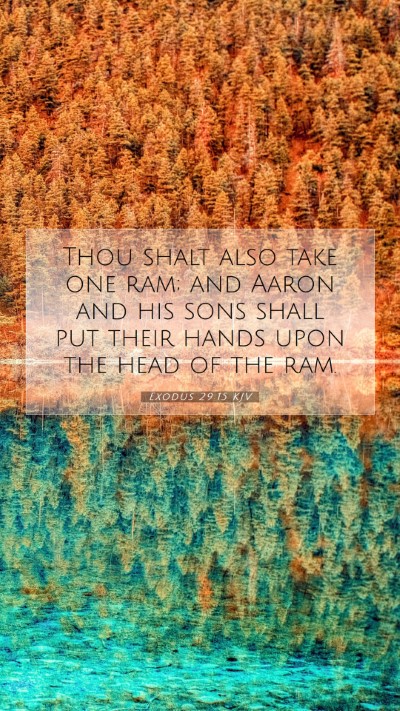Understanding Exodus 29:15
Exodus 29:15 states: "Thou shalt also take one ram; and Aaron and his sons shall put their hands upon the head of the ram." This verse falls within the context of the ordination of Aaron and his sons as priests, marked by various sacrifices and rituals required by the Law.
Meaning of Exodus 29:15
This verse emphasizes the importance of the ram in the sacrificial system established by God. The act of Aaron and his sons laying their hands on the ram signifies identification with the sacrifice, symbolically transferring their sins and the responsibility for their priestly duties onto the animal.
-
Significance of the Sacrifice: The ram represents a substitute. As Albert Barnes notes, the laying on of hands is an act of transferring sin and guilt, indicating a direct connection between the offerers and the sacrifice.
-
Priestly Authority: Adam Clarke explains that this act legitimizes the priestly office, symbolically conferring authority and responsibility upon Aaron and his sons as they begin their holy duties.
-
Ritual Importance: Matthew Henry emphasizes that the ritual highlights God’s requirements for holiness and obedience among His people, asserting that without such offerings, there can be no proper service to God.
Bible Verse Interpretations
This verse, like many in the Old Testament, is rich in symbolism and theological significance. It is imperative to look at it through the lens of the broader passage in Exodus and subsequent scripture interpretations.
Key Insights from Public Domain Commentaries
-
Matthew Henry: The laying on of hands signifies a solemn act of worship, indicating the seriousness of the priestly role and the need for atonement in communion with God.
-
Albert Barnes: The ram is a symbol of Christ, foreshadowing the ultimate sacrifice Jesus would make, which fulfills the need for atonement once and for all.
-
Adam Clarke: Indicates that the ram's sacrifice denotes the willingness of priests to bear the weight of their people's sins, which is a reflection of Christ’s role as our High Priest.
Application and Significance
Understanding Exodus 29:15 provides vital insights not only into the Old Testament sacrificial system but also into the New Testament’s teachings about Jesus' sacrificial death. Here are some applications for today's believers:
-
Understanding Scripture: Recognizing the weight of sin and the need for atonement can deepen one’s faith and reliance on Christ's sacrifice, which meets the requirements laid down in the Old Testament.
-
Bible Study Insights: This verse invites believers to reflect on their own spiritual cleansing and the significance of accepting Christ’s sacrifice for their sins.
-
Bible Study Groups: Groups can utilize this insight for discussion on how sacrificial concepts in the Old Testament lay foundations for understanding New Testament faith.
Cross References
- Leviticus 1:4: Discusses laying hands on the animal before sacrifice.
- Hebrews 5:1-3: Explains the role of priests and their sacrifices.
- Romans 12:1: Talks about presenting our bodies as living sacrifices, reflecting the significance of sacrificial offerings.
Conclusion
Overall, Exodus 29:15 serves as a pivotal teaching about the sacrificial system that points toward the ultimate sacrifice of Jesus Christ. This verse underscores the necessity of understanding Scripture within its historical context while also applying its profound truths to contemporary faith practices.


